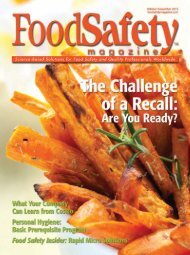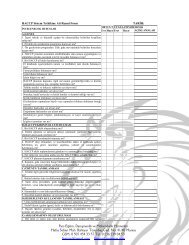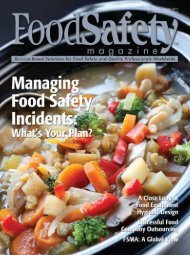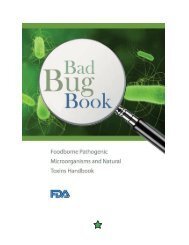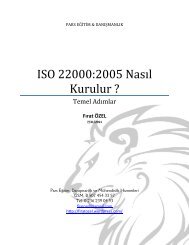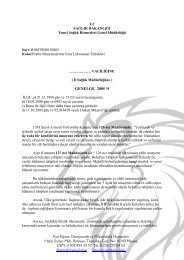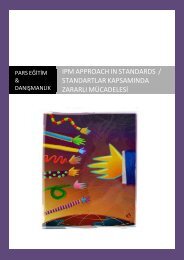Food Safety Magazine, February/March 2013
Food Safety Magazine, February/March 2013
Food Safety Magazine, February/March 2013
Create successful ePaper yourself
Turn your PDF publications into a flip-book with our unique Google optimized e-Paper software.
<strong>Food</strong> <strong>Safety</strong> Insider: Sanitation SolutionsManaged CleaningProgram Facilitates CostReductions for <strong>Food</strong>Processing Facilitieswww.spartanchemical.comThe emergence of foodborne pathogens such as Listeriamonocytogenes, Salmonella, Escherichia coli O157:H7 andCampylobacter have grabbed national media attention andawareness. In today’s world, it has become critically important tohave an effective sanitation program as part of a Hazard Analysisand Critical Control Points (HACCP) plan. A successful HACCPplan will include seven basic principles: hazard analysis, CCPidentification, establishing critical limits, monitoring procedures,corrective actions, verification procedures and recordkeeping anddocumentation.“All sanitation programs have the ultimate goal of reducingand/or eliminating all harmful contaminants,” says Chris Celusta,manager of food processing for Spartan Chemical. “Having aneffective sanitation program not only ensures public safety butcan help reduce costs by reducing spoilage and waste, avoidingrecalls, decreasing labor hours associated with cleaning and loweringlegal exposure.”It is scientifically proven that rigorous and regular cleaning,as part of an HACCP plan, is associated with major decreases infoodborne pathogens. In order for an effective chemical sanitizerto work properly, the surface must be cleaned prior to the applicationof the sanitizer. Training of sanitation staff on how to cleanmore thoroughly is paramount to the success of the program.“The need for cleaning, sanitizing and recordkeeping is welldocumented in the food processing industry,” explains Celusta.“Training of the sanitation staff is critical in order to maintain an effectiveprogram. Our approach is to train the staff with interactiveeducation and validation tools that serve as on-going proceduraland verification components in the HACCP program. The outputof this training can be used to establishCCP limits and identify the need forcorrective actions.”Spartan uses a three-pronged approachto ensure proper cleaning andsanitation is achieved—TRAINING,VALIDATION and DOCUMENTATION.Spartan’s Training & Certification Programtrains, tests and certifies staffon cleaning standards and methods.Handy, portable food processing trainingcards reinforce the training programand provide a framework for adherenceto the standard going forward. Thisprocess is supported by Spartan’s ATPvalidation tools. ATP swabs and meterallow sanitation managers to train andassess staff cleaning operations whileminimizing risk of transfer of harmfulpathogens. The data can then beloaded into Spartan’s CompuClean®CMMS (Custodial Maintenance ManagementSoftware), which allowssanitation managers to document andmonitor established CCP limits, verifyprogram progress and identify the needfor corrective action. In combinationwith Spartan’s wide range of cleaningand sanitizing chemicals, the systemprovides an end-to-end solution forHACCP plans.Contact Chris Celusta ccelusta@spartanchemical.com to learn moreabout how Spartan’s food processingprogram can help you train, validateand document your way to costreductions.42 F o o d S a f e t y M a g a z i n e



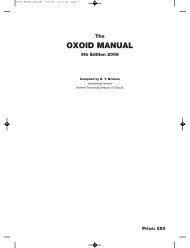
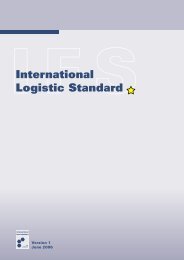
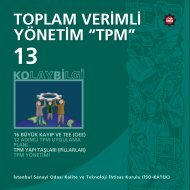
![Otomatik indirilmez ise tıklayınız [Download]](https://img.yumpu.com/44170525/1/190x190/otomatik-indirilmez-ise-taklayanaz-download.jpg?quality=85)
